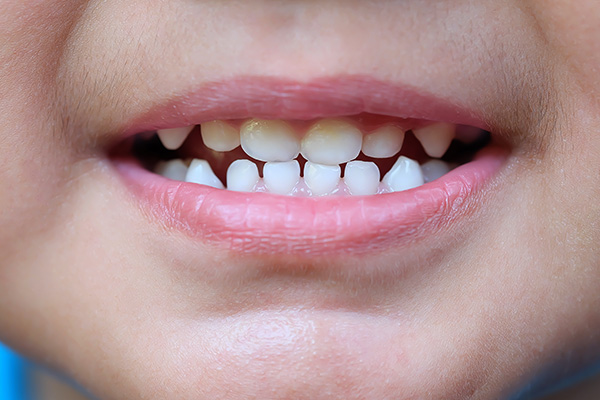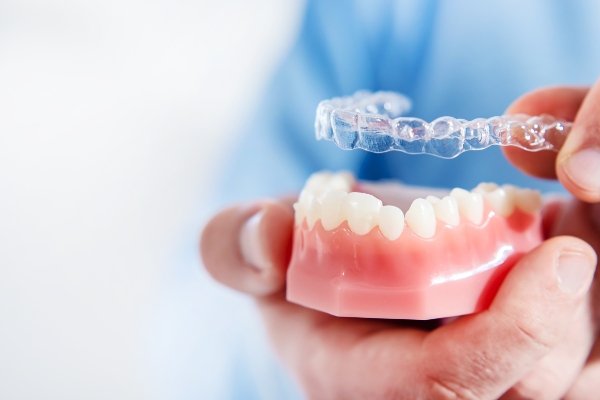 Two of the most common pediatric dental treatments for cavities are fillings and crowns. Both dental fillings and dental crowns offer unique benefits, but one may be preferable to another depending on the specifics of the cavity needing treatment. This review discusses why a pediatric dental professional opts for either a filling or a crown. Read on to learn more about each one and when we might recommend them.
Two of the most common pediatric dental treatments for cavities are fillings and crowns. Both dental fillings and dental crowns offer unique benefits, but one may be preferable to another depending on the specifics of the cavity needing treatment. This review discusses why a pediatric dental professional opts for either a filling or a crown. Read on to learn more about each one and when we might recommend them.
Is a filling or a crown better for a pediatric dental cavity?
Whether or not a filling or a crown is more appropriate for a pediatric dental cavity depends on the severity of the cavity, the location of the tooth, and the patient’s preference. The following is an overview of what a dental filling and dental crown are and how to choose between the two options when it comes to pediatric dental treatment.
What is a dental filling?
A dental filling is an artificial material that is placed in the cavity of a tooth after tooth decay erodes the enamel (the outermost layer of a tooth). There are different material types a pediatric dentist may use for a dental filling. Most commonly, fillings are amalgam or porcelain. Dental fillings are most suitable for small cavities, whereas they may not be enough to address larger cavities or more severe forms of tooth damage.
When is a pediatric dental filling recommended?
We typically recommend a pediatric dental filling when the cavity is minor and does not compromise the overall strength or structure of the decayed tooth. Fillings are often the preferable solution as they are less invasive and should last for the entire lifespan of baby teeth as long as they are well cared for in the long term.
What is a dental crown?
A dental crown, also called a dental cap, is a restoration that encapsulates a dental cavity or broken tooth on all sides. Dental crowns consist of either ceramic, porcelain-fused-to-metal, metal alloy, or gold alloy. The type of material that a pediatric dentist recommends depends on the location of the tooth and the parent’s preference for their child. Crowns are generally recommended when the tooth is more severely damaged or decayed and needs additional protection from further decay or damage.
When is a pediatric dental crown recommended?
A pediatric dental crown may be the recommended restoration if the tooth is damaged more severely or due to dental trauma. Often, we use dental crowns when the tooth is in jeopardy of becoming lost due to how weak it has become from damage or decay. In other words, if the cavity is too severe for a filling, then a dental crown may be the more appropriate solution.
Schedule a pediatric dental visit with our kid-friendly team
Does your child have a cavity or damaged tooth? If so, contact our pediatric dental team today to schedule a visit and determine whether a filling, a crown, or another restoration is right for you.
Request an appointment or call Precision Orthodontics & Pediatric Dentistry at 703-391-8800 for an appointment in our Reston office.
Recent Posts
Dental care for children often requires unique approaches tailored to their developing dentition and growing independence, and one type of care that they can receive is pediatric dental X-rays. However, parents often wonder whether exposing young children to X-rays is more harmful than helpful, so it is common to have questions about this type of…
A kid friendly dentist has many important jobs in your child’s oral wellness. Aside from cleaning your child’s teeth at semiannual appointments, the dentist will check on jaw and bite issues. As your son or daughter gets older, the dentist will also check on how the permanent teeth are coming in. There are ways the…
Cavity treatment for kids can help children maintain their long-term oral health. Tooth decay in children can lead to discomfort, infection, and long-term dental complications if left untreated. Fortunately, early detection and appropriate pediatric dental care can prevent complications and support healthy oral development as children grow up.Cavities develop when bacteria in the mouth feed…


